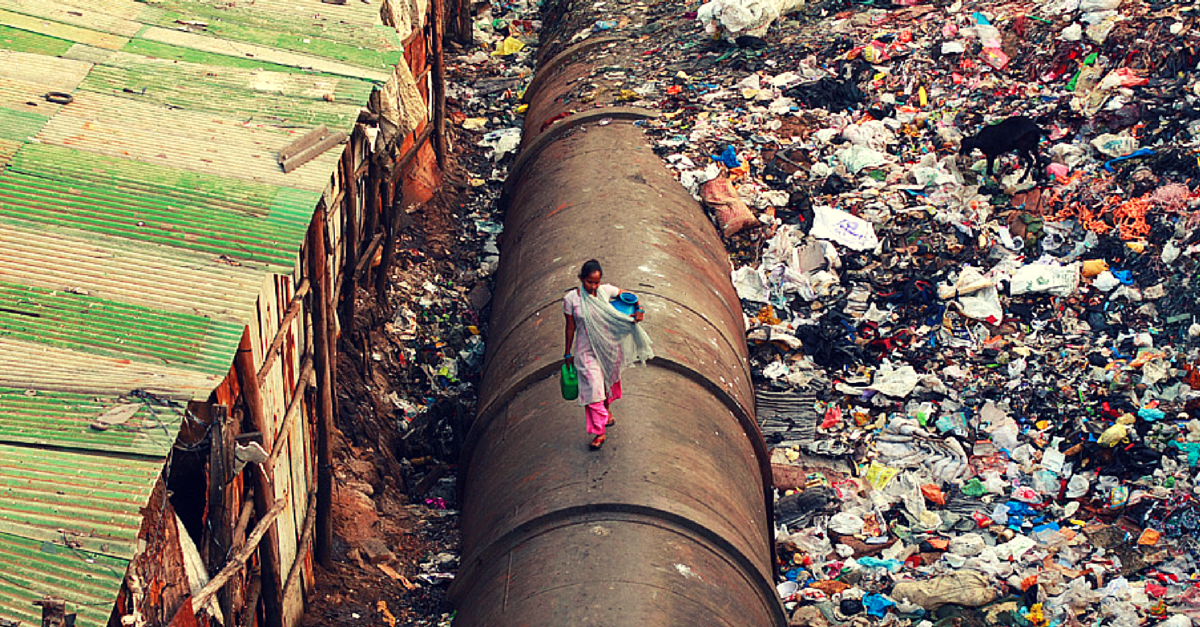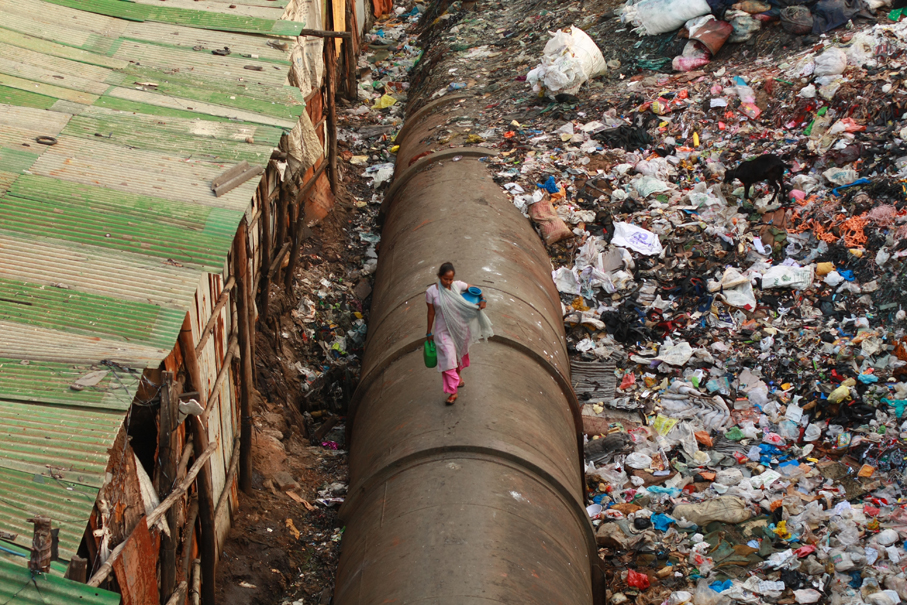Slum Dwellers of Mumbai Finally Have Freedom to Construct Toilets in Their Homes!
Slum dwellers in Mumbai can now construct toilets in their homes, thanks to the recent orders issued by BMC. Constructing toilets in these slums was considered illegal until now.

Slum dwellers in Mumbai can now construct toilets in their homes, thanks to the recent orders issued by BMC. Constructing toilets in these slums was considered illegal until now.
Sanitation is a right to life guaranteed under Article 21 of the Constitution. But up until now, it was considered illegal for slum dwellers in Mumbai to construct toilets in their homes.
However, with the aim of curtailing open defecation practices, the Brihanmumbai Municipal Corporation (BMC) has issued an order allowing residents of the 740 slums in the city to construct toilets in their hutments.
Photo Credit: Meena Kadri/Flickr
Over 60 lakh people living in the slums of the city will thus have access to sanitation facilities, and they will be linked with the city’s sewerage network. A month ago, the solid waste department of BMC had started issuing permits for slum dwellers to construct toilets.
According to a timeline drawn by the department, most of these people can have a toilet in the next few years, if everything goes as planned.
As people need water connection to construct a toilet, BMC’s administration has also created a proposal to ease norms that need to be followed while laying pipelines. This scheme will be presented to the standing committee on Wednesday. According to the scheme, slum dwellers will be provided with water connections at the rate of Rs 4.32 per 1,000 litres of water supplied.
The residents will have two options. They can link up the plumbing lines of their toilets to the sewage pipes that will be installed in the slums, or can share a septic tank which will be periodically emptied by the BMC. Septic tanks will be constructed in case several households are constructed very close to each other, and laying pipelines is not easy.
When all different ways of trying to curb open defecation by imposing fines failed, the BMC’s senior management, led by municipal commissioner Ajoy Mehta, decided that they should come up with solutions rather than just imposing penalties. They have also linked this scheme to the Swachh Bharat Abhiyan in order to incentivise the project.
“If we link it to the PM’s Swacch Bharat scheme, we can give each family that wishes to build a toilet Rs 5,000 to help things along,” said a senior corporation official to the Time of India.
This will also bring a great deal of relief to the conservancy workers who have to clear human waste, a practice which in itself is deemed illegal in India.
“The job of cleaning human waste on roads is really difficult. By allowing construction of toilets within slums, it will not only benefit the slum dwellers, but will come as great relief to conservancy workers,” said Ramesh Haralkar, a retired BMC employee who worked in the conservancy department to Times of India.
While discussing the issue of Right to Life, guaranteed under Article 21 of our Constitution, the Supreme Court had delivered a famous verdict in 1995, saying – “Right to shelter, therefore, includes adequate living space, safe and decent structure, clean and decent surroundings, sufficient light, pure air and water, electricity, sanitation and other civil amenities like roads etc. so as to have easy access to his daily avocation.”
Sanitation in this statement includes toilets. Hence, the Bombay High court had relied upon this judgement last year while asking BMC to supply water in “illegal slums” as well; that is, slums which have come up after the Jan. 1, 2000, the cut-off year which divides slums which have structural protection by the BMC, and those that don’t have the protection.
Like this story? Or have something to share? Write to us: [email protected], or connect with us on Facebook and Twitter (@thebetterindia).

Similar Story

Want to Play a Role in Shaping India’s Climate Laws & Policies? Here’s a One-Stop Guide
Civis, a platform that enables citizens to participate in public consultations in the domain of environment and policy has released Climate Voices. This is a handbook and guide for Indians to participate in environmental law-making and play an active role in shaping our climate policies.
Read more >
If you found our stories insightful, informative, or even just enjoyable, we invite you to consider making a voluntary payment to support the work we do at The Better India. Your contribution helps us continue producing quality content that educates, inspires, and drives positive change.
Choose one of the payment options below for your contribution-
By paying for the stories you value, you directly contribute to sustaining our efforts focused on making a difference in the world. Together, let's ensure that impactful stories continue to be told and shared, enriching lives and communities alike.
Thank you for your support. Here are some frequently asked questions you might find helpful to know why you are contributing?


This story made me
-
97
-
121
-
89
-
167













